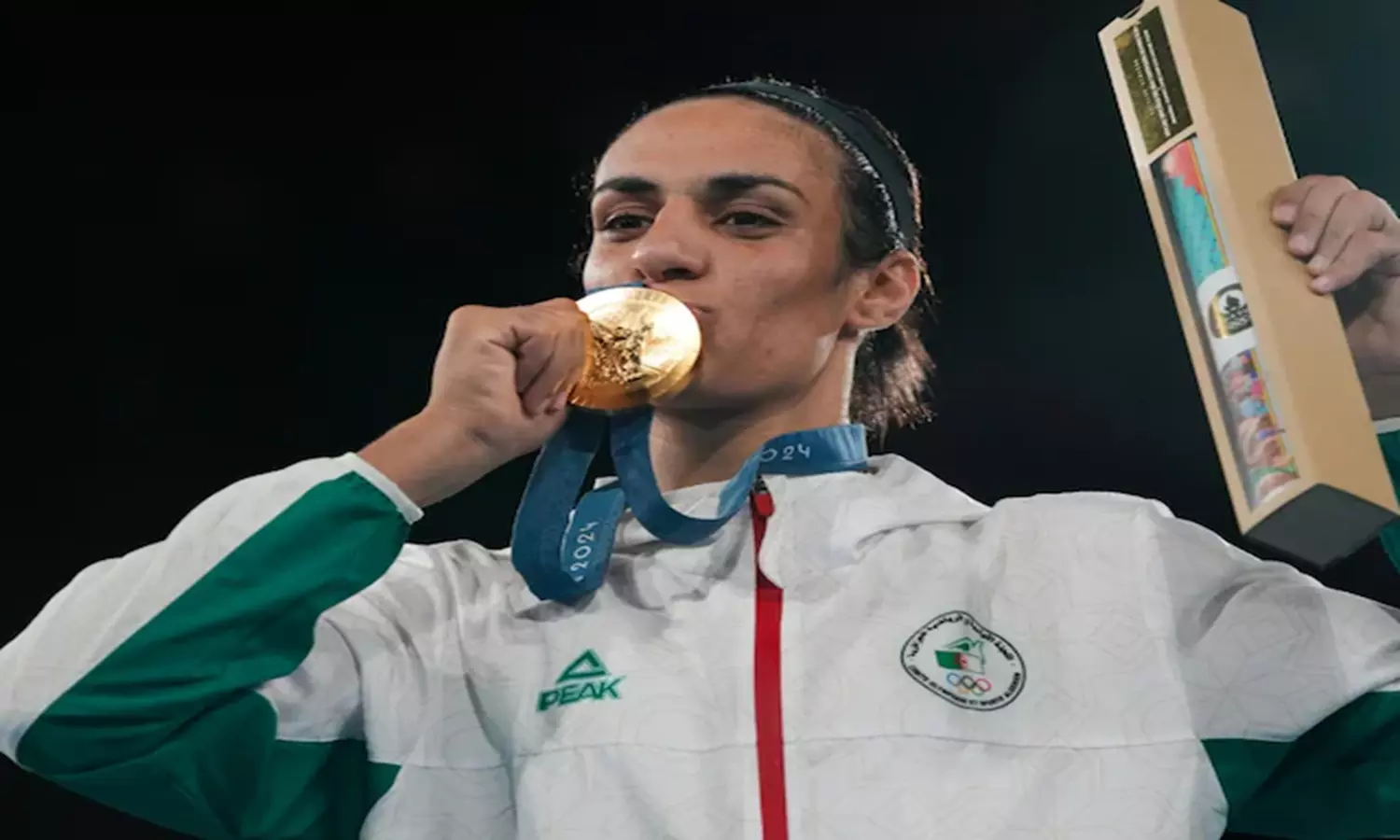Olympics
Parity achieved, dominance ensured: Women athletes shine at Olympics 2024
U.S. women clinched 66 medals, Katie Ledecky earned her 14th, and Australia’s women bagged 32 medals at the Paris Olympics.

Imane Khelif achieved Algeria’s first-ever gold medal in women’s boxing at the Paris Olympics 2024. (Photo Credit: Getty)
“Who runs the world (Girls)”
This song by Beyoncé had taken the internet by storm, and the 2024 Olympics proved it right.
It belonged to women.
For the first time in Olympic history, the Games achieved gender parity with an equal number of women and men competing.
But it was the women who stood out, showcased their talent, and broke records making headlines around the globe.
Among the most notable achievements, the performance of the U.S. women’s team was at the top. They secured 66 medals out of Team USA’s total of 126, surpassing the men by seven medals.
If American women were considered their nation, they would have ranked third in the overall medal count, trailing only behind the U.S. itself and China.
Great Britain, with 65 medals, was close behind in fourth place. Meanwhile, American men earned 60 medals, placing them fifth if assessed as a separate entity.
Katie Ledecky was a standout performer, winning her ninth gold medal and 14th overall at these Games, solidifying her status as the most decorated U.S. women's Olympic swimmer of all time.
Lauren Scruggs also made history, becoming the first openly out and Black woman to medal in fencing, securing an individual silver and a team gold.
The USA gymnastics team, affectionately known as the “Golden Girls,” made a powerful comeback.
Simone Biles and Suni Lee both seized their opportunities, with Biles winning gold in the team competition and the two athletes becoming the first pair of women all-around gold medalists to compete head-to-head in an all-around final.
The emotional podium moment saw Chiles and Biles bow down to Brazil’s Rebeca Andrade, who claimed gold in the floor exercise.
When it comes to Australia, the women were no less.
The number 32 symbolized their success, as they won 13 of Australia’s 18 gold medals and 32 of the 53 total medals across various sports.
This achievement highlighted a substantial shift in the coaching and support of women athletes in the country.
Grace Brown, a champion cyclist, set the tone with a gold medal in the time trial on the first day, and the momentum continued throughout the Games.
The increased visibility of successful women athletes has inspired many.
As Jess Hull reflected after winning silver in the 1500m, “You can’t be what you can’t see.” This visibility is crucial for inspiring younger generations and devising role models who can motivate future athletes.
The dark side
However, the Games were not without controversy.
Algerian boxer Imane Khelif faced scrutiny over her gender. Khelif, who won gold in the women’s welterweight division, encountered backlash after her victory over Italian Angela Carini.
The defeat, which came rather quickly, brought to light past issues with the International Boxing Association, which had previously removed Khelif and Lin Yu-ting from competition for failing a “gender eligibility test.”
Misinformation about Khelif’s gender spread rapidly online, leading to a wave of harassment and a legal battle.
Khelif filed a legal complaint alleging “aggravated cyber-harassment,” describing the campaign against her as “misogynist, racist, and sexist.”
The International Olympic Committee (IOC) defended Khelif, condemning the dissemination of false information.
Her home country rallied in her support, celebrating her victory and her role as Algeria’s flag bearer during the closing ceremony.
The Games were a powerful reminder of the impact women have in sports and the progress made towards gender equality.
While celebrating the triumphs, it is essential to continue addressing the obstacles that women athletes encounter and strive for a more inclusive and supportive environment in sports.

